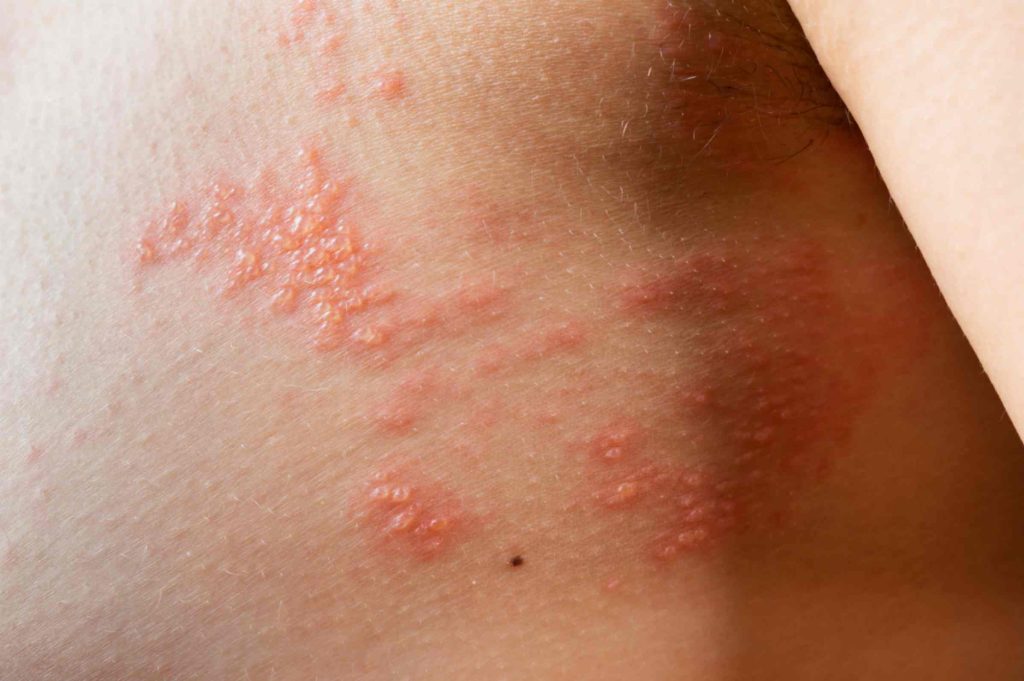Shingles is a painful skin condition caused by the same virus responsible for chickenpox, the varicella-zoster virus. After you recover from chickenpox, the virus stays inactive in your body but can reactivate later in life, causing shingles. It often affects people over the age of 50 but can also occur in younger individuals. Let’s explore what causes shingles, the symptoms, and how the shingles vaccine can prevent this condition.
What Causes Shingles?
The causes of shingles are linked to the reactivation of the varicella-zoster virus. When your immune system weakens, whether due to ageing, illness, or other factors, the virus can become active again, causing the painful rash associated with shingles. One common misconception is that stress causes shingles, but while stress can weaken the immune system, it is not a direct cause. Instead, stress may trigger the virus to reactivate.
Shingles Symptoms: How to Identify It Early
Recognising early shingles symptoms can help you seek treatment faster. One of the first signs of shingles is a tingling or burning sensation in a specific area of your body, often accompanied by pain. After a few days, a red rash with blisters appears, which is usually found on one side of the body, such as the chest or back.
Other shingles symptoms include:
- Fever and headache
- Sensitivity to light
- Fatigue
- Itching and discomfort around the rash
The condition can be very painful, especially in older adults, making early detection crucial.
Is Shingles Contagious?
A common question is, is shingles contagious? The answer is yes, but only to people who haven’t had chickenpox or the chickenpox vaccine. If someone who hasn’t been exposed to the virus comes into contact with the fluid from shingles blisters, they could develop chickenpox. However, they won’t develop shingles directly. Once the blisters have crusted over, the risk of spreading the virus is reduced.
Shingles Vaccine: Your Best Defence
The shingles vaccine is one of the most effective ways to prevent the condition. In the UK, the vaccine is typically offered to people over 70, but it may also be available for others who are at higher risk. The vaccine helps strengthen your immune system against the virus, reducing the likelihood of an outbreak. Even if you do get shingles after being vaccinated, the symptoms are likely to be milder, and complications are less common.
Shingles Treatment: What to Do If You Get It
If you notice the first signs of shingles, it’s important to seek medical advice as soon as possible. Antiviral medications can help reduce the severity and duration of the outbreak, especially if started early. Pain relief, such as paracetamol or prescription medications, can also ease discomfort. It’s essential to keep the rash clean and dry to avoid infection.
Can Stress Cause Shingles?
While there isn’t a direct link between stress causing shingles, stress can lower your immune system’s defences, making you more vulnerable to the virus. Managing stress and maintaining a healthy lifestyle is key to supporting your immune system and reducing the risk of a shingles outbreak.
Stay Safe from Shingles – Talk to Our Pharmacy Experts
If you’re concerned about shingles or considering the vaccine, it’s always best to seek professional advice. Book an appointment for advice with Touchwood Pharmacy today to discuss your vaccination options or to learn more about managing shingles symptoms. Your health is important, and we’re here to help you stay protected.



















